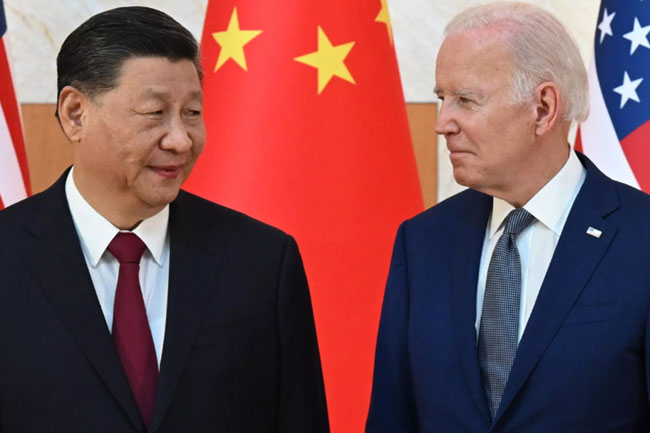In the aftermath of last month’s summit between U.S. President Joe Biden and Chinese leader Xi Jinping, military-to-military talks, aimed at reducing tensions and fostering better communication, are yet to resume. The White House expresses eagerness to kickstart these discussions, emphasizing the importance of preventing miscalculation and misunderstanding between the two nations.
John Kirby, a spokesperson for the White House, revealed that the delay in resuming talks may be attributed to China’s failure to appoint a new defense minister following the dismissal of General Li Shangfu in October. Li Shangfu served as the counterpart to U.S. Defense Secretary Lloyd Austin. Kirby stated, “We certainly urge them to designate somebody soon, and we’re eager to get those [communications] going.”
The resumption of military talks was a key outcome of the Biden-Xi summit, signifying a commitment to dialogue despite underlying tensions. The talks were suspended earlier when then-House Speaker Nancy Pelosi’s visit to Taiwan in August 2022 triggered a breakdown in communication.
The current geopolitical landscape remains sensitive, with Taiwan reporting an escalation in tensions as 12 Chinese fighter jets, accompanied by a suspected weather balloon, crossed the Taiwan Strait’s median line. This incident adds pressure ahead of Taiwan’s presidential election on January 13, a date closely monitored by the Biden administration.
The Biden administration emphasizes the need for comprehensive military communication, not only between top leaders but also among commanders in specific regions prone to conflicts. The ultimate goal is to foster understanding and prevent potential miscalculations that could escalate tensions between the United States and China. As both nations navigate their complex relationship, the resumption of military talks stands as a crucial step toward stability and constructive dialogue.















